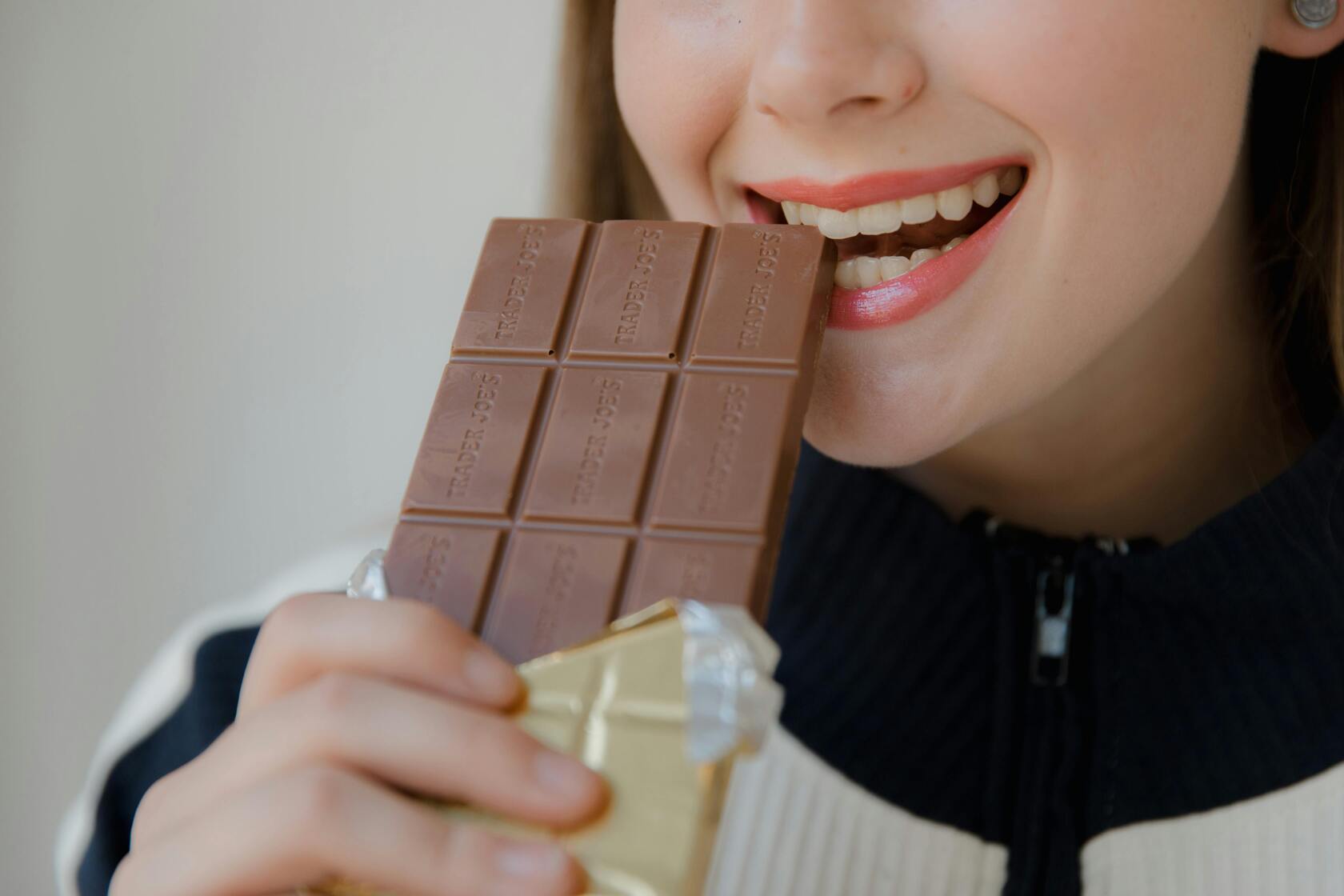The Importance of Diet and Dental Health
Posted by: Ella Maftei RDN (NEBDN), Level 5 Diploma in Leadership and Management (ILM)
Medically reviewed by: Dr Anthony Lam, Specialist Orthodontist, BDS (Hons), MSc (Lond), MOrth RCS (Edin)
What we eat has a major effect on the health of our teeth. Sugar consumption, in particular, affects dental health by feeding harmful bacteria in your mouth. These bacteria produce acids that erode tooth enamel and cause cavities, which lead to toothache and decay. During Christmas and the holiday season, when we tend to consume more sweets, this risk increases.


Some key points about diet and dental health:
How does sugar affect teeth?
Bacteria in your mouth feed on sugars and produce harmful acids that can stay active for up to 20 minutes after eating. Frequent snacking on sweets or sugary food extends this acid exposure. Sticky sweets (like toffee) are particularly problematic as they remain on teeth longer.
How can you minimise the dental risk from sugary foods?
Not eating sweets or sugary foods would be our best advice! However, we know this isn’t wholly realistic, especially for children around Christmas time. Instead, try to eat sweets with meals rather than as snacks as acid production is less harmful with meals. Opt for sugar-free alternatives when possible and dark chocolate is a better option than sticky sweets. Drinking water between bites helps wash away food particles that otherwise linger, causing decay. Also consider your timing – eating treats all at once is better than grazing throughout the day. But that doesn’t mean you should eat an entire box of chocolates in one sitting!
Protective foods for dental health
1. Dairy products
Cheese has unique protective properties. The proteins and calcium help remineralise tooth enamel. Plain yogurt provides calcium and probiotics that can help balance oral bacteria. Milk helps neutralise acid and strengthens teeth. Even sugar-free milk alternatives that are fortified with calcium can also help.
2. Crunchy fruits and vegetables
Crunchy fruits and vegetables stimulate saliva production which is good for removing sugary residue. Apples are a great sweet alternative. Although they contain natural sugars, apples also act as natural toothbrushes. Celery’s fibrous strands help clean between teeth. Carrots stimulate saliva and are rich in vitamin A, much needed for all round dental care.
3. Protein-rich foods
Protein is a building block for teeth, helping them to grow steadily, especially for children who are still developing their adult teeth. It also helps strengthen your teeth and neutralises dental plaque. Eating protein-rich foods is good for overall health, as well as dental. You can find it in lean meats, which provide phosphorus that helps protect tooth enamel. Eggs contain vitamin D, essential for calcium absorption. Nuts provide minerals and have a mild abrasive effect that helps clean teeth. And fish, especially fatty fish, provides vitamin D and omega-3s for gum health.
4. Polyphenol-rich foods
Polyphenols are found in plants and are known for their health benefits. Green and black teas contain compounds that fight bacteria. Dark chocolate (70%+ cocoa) can help prevent tooth decay. Cranberries contain compounds that prevent bacteria from sticking to teeth. And red wine – in moderation! – contains polyphenols that reduce harmful bacteria.
5. Foods rich in key minerals
Leafy greens (spinach, kale, rocket, etc) provide calcium and folic acid for gum health. Sesame seeds are rich in calcium and pumpkin seeds provide zinc for tooth enamel – both of these seeds can be easily added to cereals or smoothies. And mushrooms exposed to UV light offer vitamin D, which helps us absorb that beneficial calcium and phosphorus.
Practical tips for eating and everyday dental health – and especially the holiday season!
We suggest you drink water between mouthfuls and rinse your mouth after eating sweets. Don’t brush your teeth for at least 30 minutes after eating acidic foods – so no sweets before bedtime. When you do brush, keep a regular brushing and flossing routine. If you really can’t brush when you need to, consider keeping sugar-free gum handy.
We know many of you enjoy sweet treats (as do some of us), and while we’re not saying you should never eat chocolate or cake, please be mindful of your dental health. We hope these tips and advice help you make good, tasty food choices and keep your teeth healthy as long as possible.

Sorry, the comment form is closed at this time.